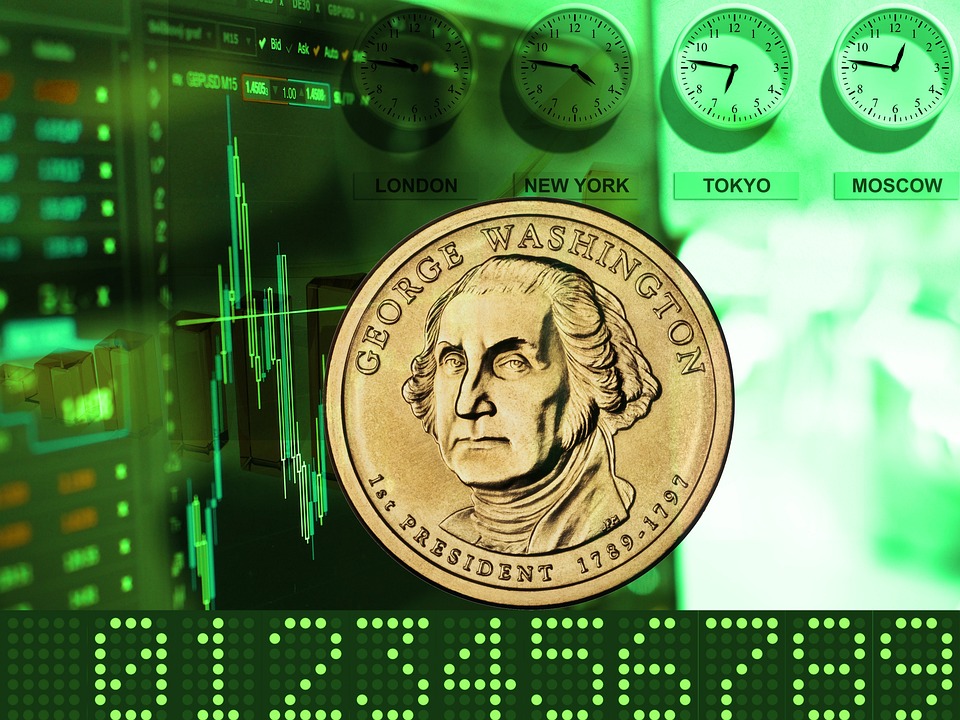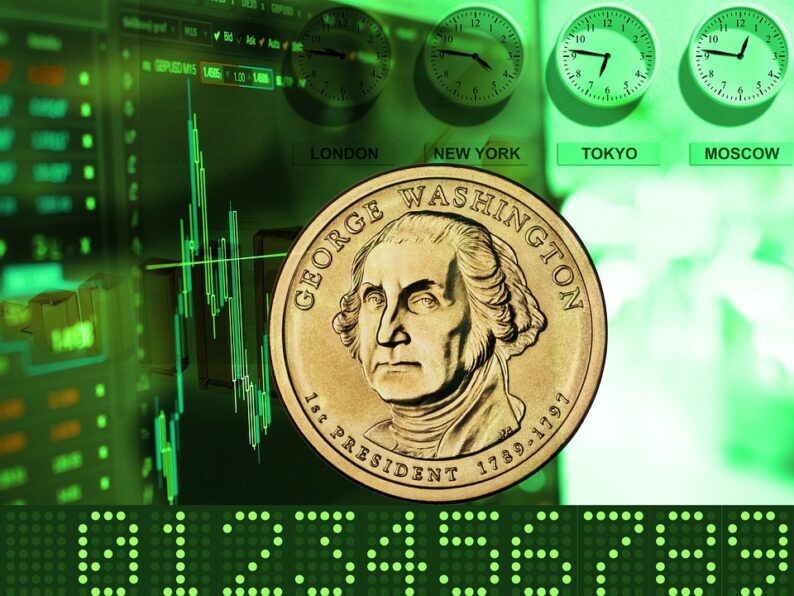 Image Source: Pixabay
Image Source: Pixabay
As of Tuesday’s stock market close, the Dow Jones Index (US30) added 0.17%, while the S&P 500 Index (US500) increased by 0.28%. The Nasdaq Technology Index (US100) closed positive by 0.90% on Tuesday. The S&P 500 (US500 and Nasdaq (US100) indices hit 3-week highs yesterday, while the Dow Jones (US30) updated a one-month-high. But by the end of the trading day, the indices began to lose upward momentum amid hawkish FOMC comments.The comments from Fed officials on Tuesday eased speculation that the Fed had stopped raising interest rates and proved bullish for the dollar. Minneapolis FRB President Kashkari said that while there has been encouraging inflation data for three months, it is not enough, and “we need to let the data continue to come to us to see if we have really put the inflation genie back in the bottle.” Chicago Fed President Goolsbee also said that the top priority for policymakers is to get inflation back to target, and the Fed does not want to commit to interest rate decisions in advance.The latest economic data showed the US trade deficit for September widened to $61.5 billion from $58.7 billion in August, exceeding expectations of $59.8 billion.Equity markets in Europe were mostly down yesterday. Germany’s DAX (DE40) rose by 0.11%, France’s CAC 40 (FR40) fell by 0.39%, Spain’s IBEX 35 (ES35) lost 0.12%, and the UK’s FTSE 100 (UK100) closed negative by 0.10%.German industrial production for September fell by 1.4% m/m, which was stronger than expectations of 0.1% m/m. The S&P German Construction PMI for October fell by 1.0 to 38.3, a record rate of contraction. The Eurozone’s Producer Price Index (displays the rate of inflation between factories) for September fell to 12.4% y/y, a record high since data collection began in 1982. All data is negative for the European currency.Rapid wage growth in the Eurozone could keep inflation high for longer, and the European Central Bank should keep interest rates at or near record highs until next year to extinguish price pressures, the International Monetary Fund said on Wednesday.Bank of England Chief Economist Pill hinted that an interest rate cut could come by the middle of next year. Markets now expect a 0.75% rate cut next year.The strengthening of the US dollar on Tuesday had a negative impact on energy prices. In addition, weakening demand for oil led to a sell-off in the commodity after Chinese export shipments fell more than expected in October. As a result, crude oil (WTI) fell to a 3-month low, and gasoline fell to a 4-week low. However, investors should not forget that OPEC+ countries have extended production cuts until the end of the year and are likely to extend these quotas for the next year, so traders should not expect a strong drop in oil prices.Asian markets were mostly declining yesterday. Japan’s Nikkei 225 (JP225) was down by 1.34% on Tuesday, China’s FTSE China A50 (CHA50) lost 0.66%, Hong Kong’s Hang Seng (HK50) decreased by 1.65% for the day, and Australia’s ASX 200 (AU200) was negative by 0.29% for Tuesday.Chinese regulators held a symposium with several major property developers, including China Vanke Co Ltd, Poly Real Estate Group Co Ltd, and Longfor Properties Co Ltd, to assess their financial situation amid a prolonged slump in the real estate market. The news boosted hopes that the government would provide additional support for the weakened real estate sector, which has faced a series of high-profile defaults in recent years. However, sentiment towards China is still intact after weak trade balance data for October. The focus will now turn to China’s inflation data for the month, due for release on Thursday.Bank of Japan Governor Kazuo Ueda said Wednesday that the central bank doesn’t necessarily have to wait for inflation-adjusted wage growth to turn positive before ending loose monetary policy. Ueda said the passive effect of rising import prices should fade, and wages and inflation need to rise in tandem for the BOJ to consider an exit from ultra-loose policy. Analysts expect Japan’s inflation-adjusted real wages, which fell for the 18th consecutive month in September, to continue falling next year as wage growth fails to catch up with persistent price increases.
News feed for 2023.11.08:
More By This Author:Analytical Overview Of The Main Currency Pairs – Tuesday, Nov. 7
OPEC+ Countries Will Maintain Crude Oil Production Cuts Until The End Of The Year
The Bank Of Japan Is Once Again Adopting A More Dovish Bias. The Reserve Bank Of Australia Is Preparing To Raise The Rate













Leave A Comment